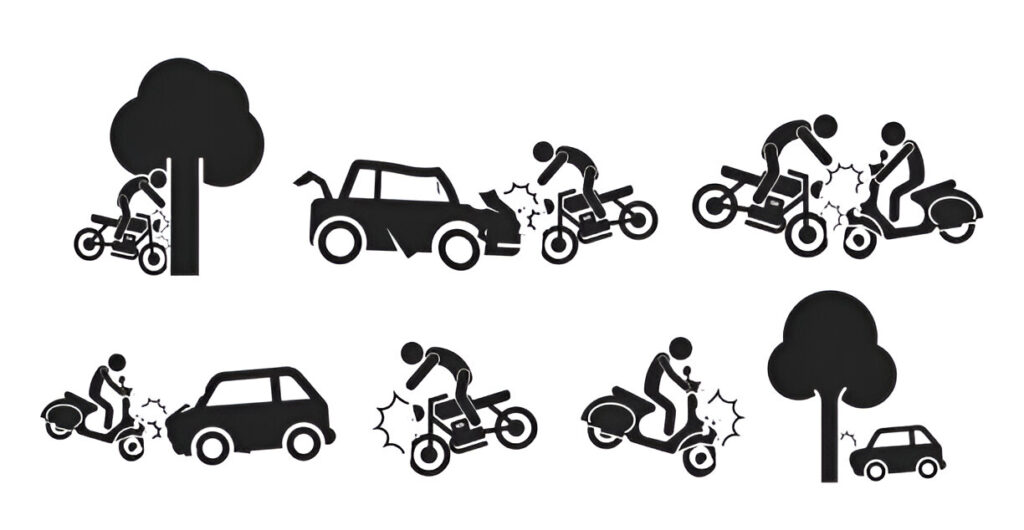Riding a motorcycle brings freedom but also risks. Knowing common causes of collisions helps you stay safe. Road conditions like potholes or debris can lead to accidents. Other drivers not paying attention or misjudging a motorcycle’s speed can cause crashes. Weather changes, like sudden rain, affect grip and control. Speeding reduces reaction time, increasing danger. By understanding these dangers, you can take steps to prevent them. It’s crucial to know who is at fault when accidents happen. Fault determines responsibility for damages and medical costs. A Milwaukee motorcycle accident lawyer guides you through legal aspects. This support helps you focus on recovery. Understanding risks and responsibilities empowers you. Stay aware, protect yourself, and ride responsibly.
Contents
Common Causes of Motorcycle Accidents
Knowing the common causes helps you anticipate hazards and make informed decisions. Here are the top reasons why motorcycle accidents occur:
- Poor Road Conditions: Uneven surfaces, potholes, and debris increase crash risk. Motorcycles are more affected than cars by these factors.
- Inattentive Drivers: Many drivers overlook motorcyclists. They may misjudge speed or not see motorcycles in blind spots.
- Weather: Rain, fog, or ice reduce visibility and road grip. Weather changes require extra caution.
- Speeding: High speeds reduce reaction time. Quick stops or swerves become challenging.
- Alcohol Use: Alcohol impairs judgment and reaction time. It affects balance and coordination.
Who Is at Fault?
Determining fault involves examining each party’s actions leading up to the collision. Here’s what influences fault determination:
- Driver Negligence: If a driver fails to see a motorcycle or misjudges its speed, they may be at fault.
- Rider Responsibility: Riders must follow traffic laws. Riding without protective gear or under the influence can affect fault.
- Road Conditions: Poorly maintained roads can contribute to accidents. In some cases, local governments may share fault.
Quick Comparison: Causes and Fault
| Cause | Potentially at Fault |
| Poor Road Conditions | Government agencies for maintenance failures |
| Inattentive Drivers | Other vehicle drivers |
| Weather | N/A (Natural conditions) |
| Speeding | Rider or other vehicle drivers |
| Alcohol Use | Rider or other vehicle drivers |
Safety Tips for Riders
Reducing accident risk involves proactive measures. Follow these safety tips:
- Wear Protective Gear: Helmets and jackets protect you from injuries. Always wear proper gear, regardless of the distance.
- Stay Visible: Use reflective clothing and keep headlights on. Visibility reduces collision chances.
- Ride Defensively: Anticipate other drivers’ actions. Maintain safe distances and avoid blind spots.
- Check the Weather: Monitor forecasts before riding. Avoid risky rides in extreme conditions.
- Observe Speed Limits: Stick to speed limits. Adjust speed according to traffic and road conditions.
Legal Guidance
After an accident, understanding your legal rights and responsibilities is important. Legal experts help clarify these aspects:
A qualified motorcycle accident lawyer aids you in navigating the legal system. They assist with evidence collection, filing claims, and understanding fault and liability.
Conclusion
Motorcycle riding involves risks, but awareness and preparation reduce dangers. Understanding accident causes and determining fault are crucial steps in protecting yourself. Follow safety tips and seek legal guidance when needed. Stay safe on the roads.



